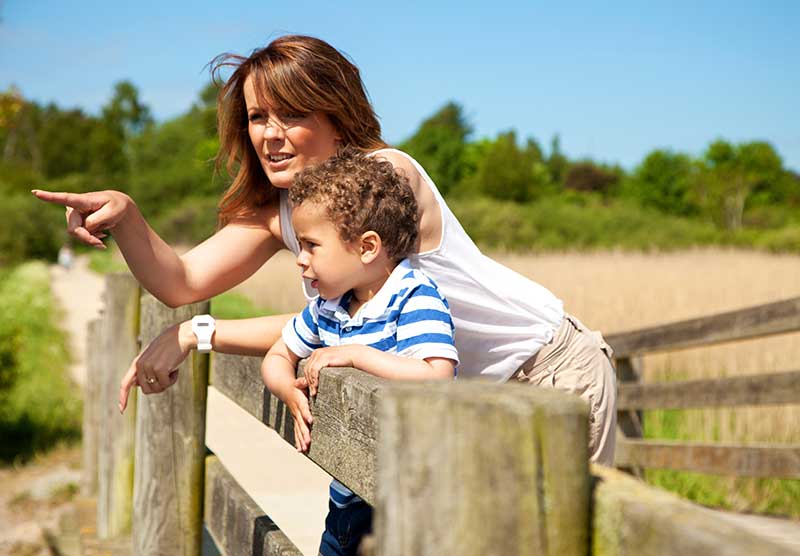1 – It doesn’t happen by magic
Children do not become bilingual “by magic”. There is a persistent myth claiming that “children are like sponges when it comes to language” and that they will learn all languages they hear regularly – this is simply not true. Yes, in the right circumstances children will naturally grow up to acquire the family languages, but this cannot be taken for granted.
2 – You need a plan
To be in with the best chance of succeeding in bringing up bilingual children, you need to plan ahead. How fluent do you want your children to be? What about reading and writing? Who speaks what and when? Discuss this in the family and agree on the goals.
3 – Consistency is crucial
Once you have your plan, you need to commit to it as a family and stay consistent in your language use. Yes, children can certainly become bilingual if parents mix their languages with them, but the risk that they will at some point prefer to stick to the majority language is far greater if they have become used to the minority language parent easily switching to the majority language.
4 – You will have to pay attention to exposure times
Once you have your plan, you need to look into how much exposure your children get to each language. There is a general recommendation (there is, however, no scientific proof for this) that children should be exposed to a language at least thirty percent of their waking time to naturally become bilingual. This should however only be taken as a guidance – depending on the type of exposure, children might need more or less time to acquire a language.
5 – You will have to invest some extra time (and sometimes maybe a bit of money)
You will need to find the time talk a lot, to do the reading and to find resources to help your children learn the language. You might find that you need to use your holidays to make a trip to boost your children’s motivation to speak the language.
6 – There will be doubters
Not everyone will agree with you that it is a good idea to raise your children to speak all family languages. There will be those who tell you that there is no point, that it is not going to work. Others will think that you are expecting too much of your children, and some will say that you are confusing your children with all these languages. Ignore these doubters, but also, forgive them, as they do not know what they are talking about.
7 – Don’t listen to bad advice
There might be times when a professional tells you to stop speaking a certain language to your children. If in doubt with regards to your child’s language development – speak to a specialist who is experienced in dealing with bilingual children.
8 – It is not always easy
There will be all sorts of challenges along your family’s multilingual journey – apart from the doubters and the ill-informed “experts” there will be more mundane obstacles: will you be able to stick to your plan when “life happens” and offers its surprises in form of changed family circumstances, moves, career progressions, influence from others and so on? When it feels difficult, ask for advice and help.
9 – Your child might answer you in the “wrong” language
This one usually hits the minority language parent. You feel that you have done everything right and stayed consistent, and still your darling comes home from school one day and no longer answers you in your language. You will feel disappointed and disheartened if it this happens, but it is crucial that you don’t give up at this point, and that you continue to stay consistent and if possible, also increase the exposure time.
10 – Your children will gain an array of benefits by becoming bilingual
If you are still in doubt about whether to bring up your children to become bilinguals or not, read about all the great benefits your children will gain if you do decide to do it. We all want what is best for our children, so why wouldn’t you support yours to have the wonderful gift of speaking more than one language?
11 – You will never regret it
I can assure you, you will not regret your decision to stick with it and make sure that your children grow up to speak all the family languages. On the other hand, I have heard several parents who are sad that they gave up on passing on their languages – not to mention the many adults expressing their disappointment that they were not taught a language their mother or father knew when they were small.
12 – You will be proud
You will be immensely proud when your children for the first time speak to their grandparents or other relatives in “their” language. I can assure you that the feeling is absolutely wonderful. Not only will you be proud, so will your children and the rest of your family. You will also be a great role model to other families.
May the peace and power be with you.

 Persian
Persian  English
English  Arabic
Arabic 









